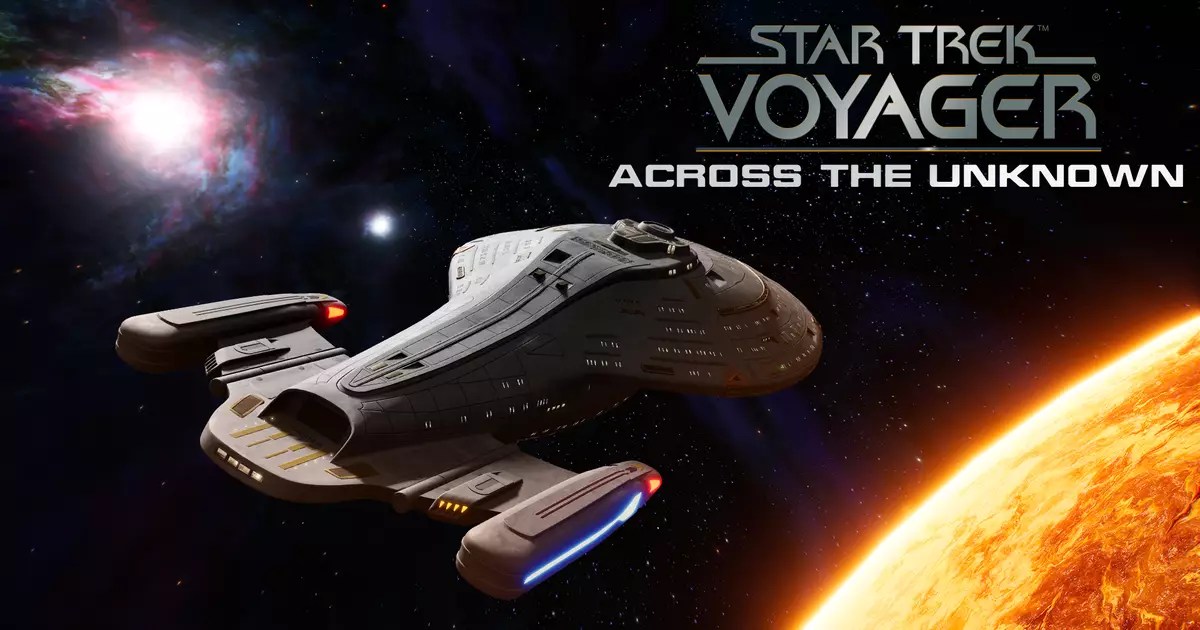The announcement of *Star Trek: Voyager – Across the Unknown* instantly ignites a wave of excitement rooted in deep nostalgia for fans of the iconic series. This game promises to deliver a fresh experience by immersing players in the mysterious and uncharted regions of the Delta Quadrant, the very realm where Voyager’s crew faced their most daunting challenges. Yet, beneath the surface of this enticing premise lies a complex interplay of expectations, gameplay mechanics, and the perilous line between homage and innovation. It’s clear that the developers, gameXcite, aim to create a richly layered narrative experience intertwined with strategic decision-making. Their decision to fuse storytelling with resource management suggests an ambition to transform the familiar Voyager universe into an interactive sandbox where players can carve their own path through moral dilemmas, diplomatic snares, and survival battles.
The Power of Choice and Consequences in a Beloved Universe
What truly differentiates *Across the Unknown* from traditional Star Trek tie-ins is its emphasis on player agency and the ripple effects of decision-making. The game’s design seems to lean heavily into the “what-if” scenarios that fans have always pondered—what if Janeway had made a different choice? Could Seven of Nine become something more than a Borg drone? The inclusion of options such as diplomacy versus aggressive tactics, or technological research that diverges from the original series guidelines, suggests a game willing to explore the moral gray areas that the series famously navigated. While this is undeniably appealing—offering a sandbox of endless possibilities—it also presents a double-edged sword. Will players feel a sense of narrative coherence, or simply a jumble of alternate realities and what-ifs that lack emotional weight? It’s a delicate balance, and one that the game must master if it hopes to retain the franchise’s soulful depth amidst its strategic complexity.
Gameplay Mechanics: A Mixed Bag of Classic and Unfamiliar
The game’s mechanics appear ambitious—layering ship and crew management, base-building reminiscent of *XCOM*, and roguelite elements that promise replayability. However, this amalgamation raises questions about pacing and engagement. The decision to feature top-down space navigation within solar systems, reminiscent of a scaled-down *Mass Effect*, might risk diminishing the grandeur of the Delta Quadrant, reducing it to a small, somewhat uninspiring map. This design choice may betray a lack of familiarity with the vast, immersive scope space-bound exploration deserves. Nevertheless, the away missions stand out as a compelling aspect: selecting crew with unique skills to confront hazards or complete scientific objectives introduces a satisfying tactical layer. These operations allow players to feel directly involved with the crew’s survival, fostering a sense of camaraderie and strategic planning that can elevate the experience beyond mere management.
The ship-to-ship combat mechanics, involving assigning crew to systems and targeting specific vulnerabilities, hint at a more tactical approach that could satisfy fans of strategic combat. Yet, it remains to be seen whether this system will feel engaging or simply procedural within the broader gameplay loop. The absence of a concrete release date intensifies the anticipation, but also underscores the developmental challenges inherent in combining so many complex gameplay elements cohesively.
Nostalgia Versus Innovation: The Risky Tightrope
Ultimately, *Across the Unknown* appears to be a game driven by a potent mix of nostalgia and a desire for innovative gameplay. For die-hard Voyager fans, this title is a sanctuary of familiar faces and iconic settings, but it also ventures into uncharted territory by offering deep customization and branching storylines. The notion of recreating classic characters like Janeway and Chakotay, then placing them in new contexts, raises questions about fidelity and creative freedom. Can the developers honor the original series’ spirit while offering enough novelty to justify the new game? This tension between reverence and reinvention is at the core of many successful franchise adaptations—if handled well, it can result in a meaningful experience. If mishandled, it risks alienating purists while failing to attract new players seeking innovative gameplay.
The game’s identity will ultimately hinge on whether it balances these competing priorities, delivering an emotional resonance weighted by intelligent design choices. As fans wait with bated breath, the hope is that *Star Trek: Voyager – Across the Unknown* can carve out its own unique star system—an uncharted but promising galaxy of storytelling and strategy.

